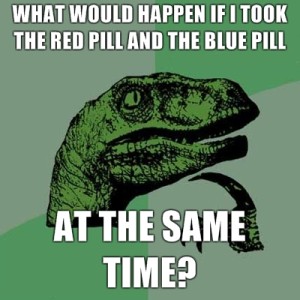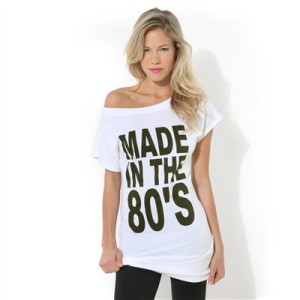The indefinite article is used when you mention something for the first time or want to say: “some one”, “any”, “one of”.
Using the indefinite article a (an)
Article a (an) is used only before countable singular nouns - i.e. in front of those where you can mentally say one.
Countable nouns are those that can be counted. For example, books, trees, dogs, etc.
In the plural, the indefinite article is not put.
1. At the first mention
I’ve seen a new film. The film is called Slumdog Millionaire. - I watched a new movie. It is called the Slumdog Millionaire.
This is a classic example: the article is first used a, at repeated - the article the.
2. The general situation (one, some, any)
It is about something in general, and not about something specific.
Example
I’d like to buy a dress. - I want to buy a dress.
This is not about a specific dress, but about some kind of dress.
And if you said:
I’d like to buy the dress - this would mean that you do not mean some unknown dress, but a specific dress, this.
3. We are talking about a representative isolated from a number of the same type.
Example
Ludwig van Beethoven was a great composer. - Ludwig van Beethoven was a great composer.
Those. one of the great composers. If we put here instead of the article a article thethat would mean that Beethoven - only great composer in the world. But this is not so. There are many great composers, and Beethoven is only one of them.
The difference between the article a and an
Article a used before words that begin with a consonant, and the article an - with a vowel.
Examples
A book - a word begins with a consonant.
An apple - a word begins with a vowel.
Everything seems to be simple and clear? Yes, but there are more difficult situations. Please note - with consonant (vowel) sound, not letters.
Examples
A house - a word begins with a consonant.
An hour - a word begins with a vowel.
A university - a word begins with a consonant.
An umbrella - a word begins with a vowel.
How so, you ask? Why before the word university article worth a? After all, this is the vowel sound!
Remember, this is not about writing, but about pronunciation. See the transcription of the word university: it starts with. And this is a consonant sound! By the way, in Russian th is a consonant sound.
Examples
The words in the table below begin with a consonant sound, so in front of them is always the article is put a.
The words in the table below begin with a vowel, so in front of them is always the article is put an.
Note
The choice of article a or an the first sound of the word immediately following the article is affected. Please note - the first word will not always be a noun!
Example
An umbrella - vowel in the word umbrella
A black umbrella - consonant in black
An hour - vowel in the word hour
A whole hour - consonant in the word whole
If the noun that we are talking to the interlocutor is already known to him (or we think that is known), the article the the is used before this noun. The good news is that in english language the definite article the one does not change, either by numbers, by gender, or by any other grammatical categories. Those who have studied German will certainly appreciate this - after der die das (and at the same time dem with den) - to use only one form - the - a significant relief.
Let's go over the main cases when we use a certain article.
1. With the noun that was already mentioned before
This is a basic rule. After the first mention with the indefinite article a, the object becomes known, becomes “thereby”. And so the next time you need to use the article the with it.
I have an apple and a banana. The apple is sour and the banana is rotten.
2. If the interlocutor must understand what kind of object in question
If the noun has not yet surfaced in the conversation, but the interlocutor must already understand which of the many objects in question, use the. For example, if you, as a guest, ask the owner where the toilet is located - most likely you mean the toilet in his apartment, and not the toilet at all: therefore, “Where is the bathroom?” Will be absolutely correct use of a certain article.
Dude, are you going to the party? – You mean tonight at John’s? No. man, I can’t.
 The red and the blue pill
The red and the blue pill 3. If there is an indication about which object in question
If in the sentence you give a definition of what kind of object you mean, then you need a certain article. Moreover, such a definition, depending on the situation, can be a simple adjective or a whole subordinate sentence.
You take the red pill - you stay in Wonderland and I show you how deep the rabbit-hole goes. (The Matrix)
You’re face to face with the man who sold the world. (David Bowie’s song. Or Nirvana’s cover of that song)
 Save the earth
Save the earth 4. For objects that are unique in nature
Some objects in nature have exactly one thing. For example, the sun. There are many stars, but the Sun is one, therefore the Sun. The same can be said about the Earth (the Earth), the Moon (the Moon), the Solar System (the Solar System), the Milky Way (the Milky Way), the world - in the sense of our world, the World. But be careful, other planets, apparently, are considered not so unique and do not require a certain article. An even more complicated situation is with geographical names, we will talk about them separately.
The milky way is truly enormous - one hundred thousand light years in diameter.
 The biggest lie
The biggest lie 5. With superlatives
For those who do not remember what a superlative degree is, it’s all that “the most-most” is the most beautiful, the most intelligent. And since there should not be two very-best ones (in principle, they cease to be the very-most, and become "one of"), which means that the very-most object is unique and deserves a certain article.
I’d climb the highest mountain / If I knew that when I climbed that mountain / I’d find you.
The biggest dog in the world is 2.1 meters long and weights about 114 kgs.
6. With a group of people
With the article the we speak of collective nouns indicating a group of people. They can be collected both by profession - the Police (police), and by nationality - the Irish (Irish), and by social status - the working class (working class), or even may not be people in the strict sense of the word - the Neanderthals (Neanderthals).
Well, the poor keep getting hungry, and the rich keep getting fat. Politicians change, but they’re never gonna change that. (Protest Song by Hugh Laurie)
 “Made in the 80s”
“Made in the 80s” 7. With decades
With decades, whether they are perestroika 80s, dashing 90s, or just zero, a certain article is used.
The roaring twenties ended with a start of the Great Depression.
Synthpop, a genre of popular music which uses synthesizer a lot, became popular in the 80s.
So: if an object stands out from the “gray mass” for you and for your interlocutor, use the article the. And he can stand out with anything - either be truly unique (the only one in the world or the very best), or simply be already mentioned in the previous sentence.
Many English students have difficulty using the articles. ‘A’, ‘an’, ‘the’.
This lesson will teach you how to use articles in English correctly.
Articles are an interesting thing. Many students successfully learn single words and seem to have a good knowledge of grammar, but sometimes they forget that the correct use of articles in English is very important.
By the article we determine the singular or plural of the noun in front of which it stands. And if you meet the article, then you conclude that it is said about something in the singular.
But that is not all!
When do we use articles ‘A’ or ‘The’ we are talking about one single object.
For instance: I have a pen. The pen is blue.
Of course you ask me why in one case I say ‘A pen’in another ‘The pen’. Is it the same pen or not?
Indeed and ‘A’and ‘The’ used before singular nouns. But ‘A’ we use when we are not talking about something specifically, i.e. we mean some general concept.
‘A’ - for general concepts (vague)
‘The’ - certain concepts
Hence the names of these articles ‘a’ are indefinite, and ‘the’ is definite.
I want to show you an example that will help you remember something else.
If I show you the pen and say: "This is a pen ». This is the first mention of the pen in a conversation. And I use the article ‘A’.
For example, I can ask you:
"Can you get me a pen? "
I do not mean any particular pen. You don’t know which pen I'm talking about and you can ask me:
"OK, what pen are you talking about?"
When I point to the pen, you understand: "Ah, you want a pen" (any pen). I need any pen.
So to summarize, in what cases is the article used‘A’:
- We are talking about a general concept
- We are talking about what not everyone knows.
And this is very important. I will give an example.
My friend, for example Mike, invited me to a party today.
When I talk to my other friend Josh, he knows nothing about this party. And if Josh asks me:
- What are you doing tonight?
- I’m going to a party.
Despite the fact that I mean a very specific party, Josh knows nothing about it and I have to use the indefinite article ‘A’.
Let's now imagine that Josh and Mike were talking about a party before I entered. Josh asks me again: "What are you doing tonight?"
Now I know that Josh knows about the party and I will answer:
- I’m going to the party. Are you going?
And this is an example of when you talk about a subject that is known to all.
So, the definite article ‘the’ is used in cases:
- We are talking about something specific.
- Everyone knows about the subject of conversation.
Now let's talk about a small nuance when using articles in English before words beginning with a vowel.
With article ‘The’ everything is in order - it does not change. But with the article ‘A’ change occurs: ‘A’ turns into ‘An’.
For instance: an elephant, an apple.
But from this rule there is an exception:
With words starting with sounds (you) and (your) for example: universityand europeanwe use the unchanged article ‘a’: a university.
English joke
A man walks into a shop and sees a cute little dog. He asks the shopkeeper, “Does your dog bite?”
The shopkeeper says, "No, my dog \u200b\u200bdoes not bite."
The man tries to pet the dog and the dog bites him.
“Ouch!” He says, “I thought you said your dog does not bite!”
The shopkeeper replies, “That is not my dog!”
-
The article is a word that defines a noun.
In English, there are two types of articles: definite (the) and indefinite (a / an).
Based on the names, respectively, the indefinite article is used when we are talking about a phenomenon that we meet for the first time, a subject in general, and a specific one - when we are talking about something specific, or already previously encountered in a conversation.
The concept of the article is present in many languages \u200b\u200bof the world, but in the same number of languages \u200b\u200bit is absent.
Therefore, do not panic if your mother tongue articles are not used.
The data will help you make fewer mistakes by speaking English.
It is very important to be able to use the right article in your spoken or written language.
1. With the names of countries and continents
In this case, we do not use the articles at all, BUT if the name of the country consists of parts, such as USA, UK, UAEthen our article appears the, and will be: the USA, the UK, the UAE, the Czech Rebublic, the Netherlands.
This also applies to continents and islands: we usually don’t use the article, but if the name is collective, the definite article has a place to be.
For example: Africa, Europe, Bermuda, Tasmania BUT the Virgin Islands, the Bahamas.
- She lived in America.
- They live in England.
- My friend is from the Czech Republic.
2. With the words breakfast, dinner, lunch
When it comes to eating food in general, the article is missing. But if you are talking about a specific breakfast, dinner or lunch, eat the.
For example:
- I don’t eat breakfast.
- We didn’t like the dinner.
3. With the names of work, profession
In this case, the indefinite article is used. a / an.
For instance:
- I want to be a politician.
- My younger brother wants to be a vet.
4. With the names of the cardinal points
Usually the names of the cardinal points are capitalized, so they are easy to recognize: the North, the South, the East, the West .
True, if a noun indicates a direction, then it is worth using it without the article and write with a small letter.
For instance:
- They went east.
- The North is cooler than the South.
5. With the names of oceans, seas, rivers and canals
Remember that the definite article is always used with the names of these reservoirs.
For instance: The Amazon, the Indian Ocean, the Red Sea, the Suez Canal .
- I would like to swim in the Red Sea, and you?
- The Amazon is the longest river in the world.
6. With the names of unique phenomena
It is understood that a phenomenon or object exists in one instance, one of a kind, in particular, the sun, the moon, the inter net , the sky , the earth.
For example:
- The sun is a star.
- We looked up at all the stars in the sky.
- He is always on the internet.
7. With uncountable nouns
This category of nouns implies those units and concepts that we cannot calculate. Plus, as an identification mark in most cases, they have no ending -s - indicator of the plural.
But do not forget that there are ten exceptions to one rule, that is, if you are talking generally about some uncountable concept, there will be no article, but again, if a special case, use the.
For instance:
- I like bread / milk / honey.
- I like the bread / the milk / the honey. (Specifically, this and no other.)
8. With surnames
If we are talking about members of the same family, you can put the article the before the surname. Thus you designate a group of people, a family in one word.
For example:
- The Smith are coming for dinner today.
- Have you seen the Jonson recently?
These are not all cases of using articles in English. However, to begin with, remember these rules, gradually deepening your knowledge of English grammar.


